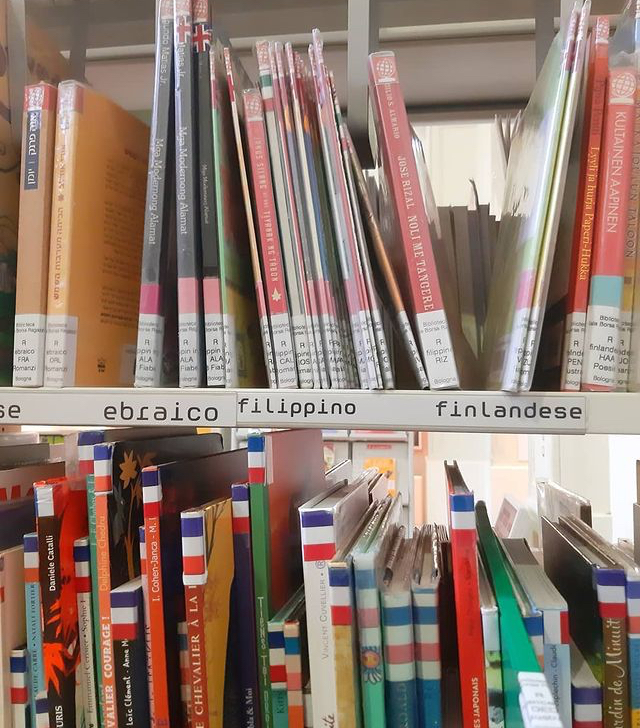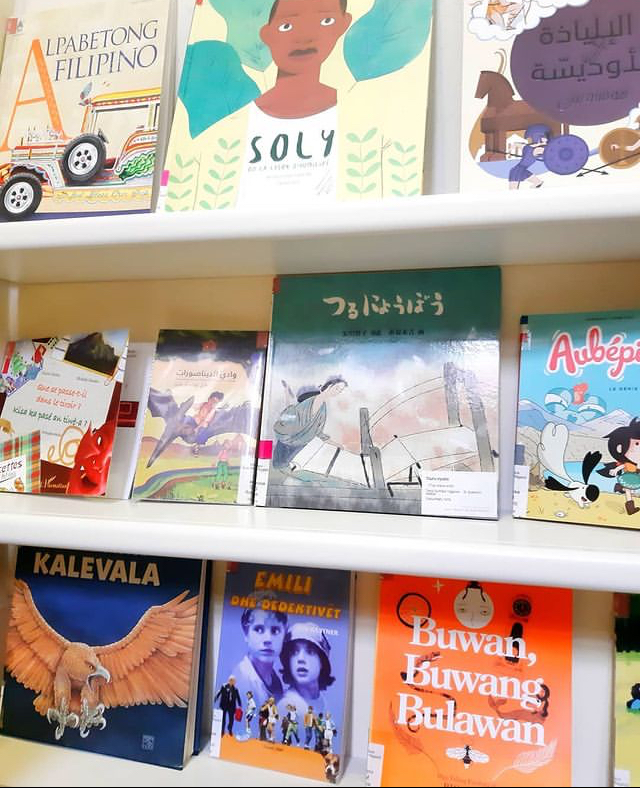When an Italian teacher told columnist Elisha Hidalgo that her child should only speak Italian, she re-evaluated the role of language in the lives of Filipino expat children, and made a plan on how to approach language learning for immigrant children effectively, without sacrificing their mother tongue.
“Quale lingua parlate a casa? Per imparare bene l’italiano, i bambini devono parlare solo in italiano, anche a casa vostra.” (What language do you speak at home? To be able to learn the Italian language, the kids need to speak only in Italian, even at home.)
I often hear this advice from the teachers at my children’s school. During regular parent-teacher meetings teachers point out that speaking Italian, even at home, is important for integration. While I believe that teachers only have the best intentions at heart, I doubted whether their advice could provide solutions or create more difficulties.
Learning a third language for kids
As a parent of immigrant kids, I understand the importance of learning the language of your adopted country. Being able to communicate effectively in the local language is necessary for better social integration, and can provide better work opportunities and higher educational attainment. But what concerns me is the assumption that to be excellent in the Italian language, one must abandon one’s mother tongue.
Most Filipino children grow up bilingual, speaking and learning Filipino and English from a very young age. They may also speak other local languages as well, depending on where they come from in the Philippines. Even if English is not widely used here in Italy, my children must learn a third language.
Contrary to the advice of the teachers about not mixing the languages spoken at home, bilingual children are able to cope with mixing languages at an early age, and the practice of switching back and forth between languages can lead to cognitive benefits later. This was suggested by the study called Parental language mixing: Its measurement and the relation of mixed input to young bilingual children’s vocabulary size. Bilingualism: Language and Cognition conducted by Krista Byers-Heinlein in 2013.

Earlier this year I was invited to speak at an online seminar for preschool teachers in Bologna. I was curious about how Filipino mothers deal with language learning for their new-born and pre-school children. I asked how they felt about the advice not to speak Filipino at home and to stick to the Italian language so children could learn faster.
All the mothers I interviewed are opposed to the idea.
Navigating the language dilemma
According to mother *E. from Bologna, the only difficulty she had when it comes to languages is whether to teach her child the Italian or English alphabet. But she noticed that her child could understand both. E.’s 5-year-old child attended nursery or pre-school both in the Philippines and Italy.
“In the Philippines, children going to pre-school are already taught alphabet and numbers. When they start Grade 1 or primary school, they can already recognize numbers and letter. They do not do that in Italy, so it’s up to the parents to teach these to their children. What I appreciate is that they nurture creativity of the children. They compile artworks and crafts and give them to the parents at the end of the school year.”
E.’ son understands Italian, English and Filipino, which the school does not seem to mind. At home, they speak Tagalog. But she noticed that her son prefers to answer in Italian when she talks to him in her mother tongue.
“I don’t think it’s true that speaking Filipino with your child has a negative effect on his ability to learn Italian. Although he is growing up in a Filipino-speaking household, he can speak Italian well. My dilemma is that I’m not fluent in Italian, so I would rather speak to him in Filipino,” added E.
E’s observation is supported by a 2007 study conducted by Annick De Houwer in 2007. De Houwer concludes that as children become older, they adopt to the local language, thus becoming their major language. The language that they don’t speak often becomes their minority language, even though they learned it at home or at an early age.
Jenny, also from Bologna, was specifically advised by the teacher of her son.
“They say my son answers in words they do not understand. For me, that is not right. I think it is important to teach them our mother tongue. Italian should be learned at school,” she said resolutely.
Dian, another Filipina mother, echoes Jenny’s sentiments.
“The teachers should help children learn the Italian language because they are trained to do that. We parents should teach our children the language of our country so that when we go home for vacation, they will not find it difficult to converse with relatives and other people around them.”
*Diane, Filipina mom in Italy
Philline, a Pinay mother from Bologna, also believes that Filipino children should learn the language of their parents. She has proven how useful it is when they went back home and lived in the Philippines for three year.
“At first I thought that my children would find it difficult (to speak Filipino), but they did well and received high marks because they know both Filipino and English.”
Reading through their answers, I was comforted by the fact that most parents would continue to teach their kids the Filipino language abroad.
Teaching kids Filipino abroad
But raising children does not start and end at home. Parents, the school, and the community play equally important parts in nurturing our children’s language skills.
After raising my disagreement with the teacher’s advice, the teacher in question had a different approach during the next seminar. Instead of telling me not to speak Filipino at home, she encouraged me to let my son express himself in Italian.
“We do not discourage your children from speaking your language at home because we understand the importance of teaching your children your mother tongue,” she explained.
I believe that such statements are more encouraging and have more positive impact to migrant parents like myself. Cutting ties with their Filipino language is not the way for children to learn or understand a new language better. Instead, we should expose them to more situations where they will acquire language skills. Like reading books, joining social activities, or enrolling them in sports classes. Interaction with other children is important in language development. Patience is also necessary because children learn language in different paces, particularly when you teach kids Filipino while living abroad.

Community involvement
As a Filipino community, we must also take an active role to bring our language closer to our adopted countries.
A few years back, I noticed that only few Filipino books were at Bibilioteca Salaborsa, the library that I frequent in Bologna. So I wrote the library director and requested that more Filipino books be made available in their collection. I cited why it was important for the Filipino community in Bologna. I also made a list of book recommendations, most of them are required reading in elementary and high school in the Philippines. They responded positively, and the next time I passed by the library, they already had a copy of Jose Rizal’s Noli Me Tangere.
The secret to learning a new language is by making it a fun and enjoyable experience for our kids, and not a source of frustration. My hope is that the Italian community, particularly the schools, understand that migrant children will always have two homes. And to better citizens of both, we need to understand, learn, and love both of their languages.




